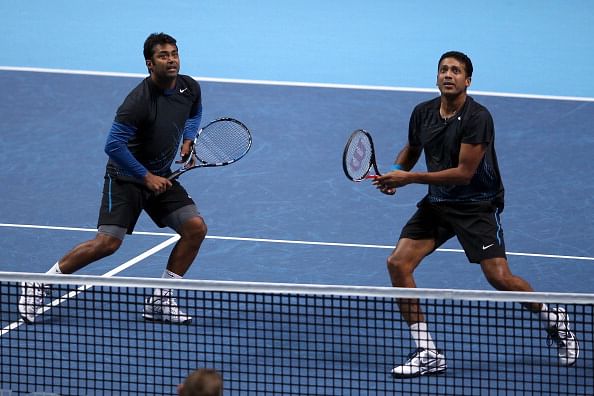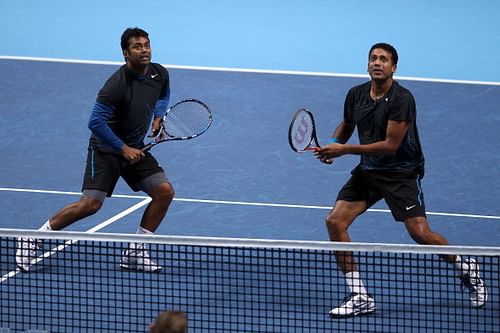
The Olympics - An empire yet to be conquered
The London Olympics is arguably the biggest sporting spectacle in 2012. Athletes from all around the world have assembled to battle it out against each other for the ultimate crown – winning a medal for oneself and for the country in this prestigious event. In countries like USA, China and UK, the Games have always been widely followed. The event, in its long run, has produced heroes whose lives have changed beyond recognition.
Everybody who reads newspapers would know of Michael Phelps. An average fan would remember him as an American athlete who won several medals across swimming events at the Beijing Olympics in 2008 – eight gold medals to be precise. But despite that, and despite having a stronghold in several other events, USA couldn’t overcome China on their journey to the top of the medals tally.
The above analysis was just one of the umpteen examples you can quote to stress the fact that individuals can bring pride to the nation, but the nation’s pride doesn’t depend on just individuals. The celebrations in the United States would have been more voluminous and gleeful had USA managed to get the better of China, even if Phelps had not won as many Gold medals. Alternatively, Phelps would have made his journey from being admired to being respected or worshiped, had his medals helped USA to the top of the medals tally. Make no mistake, Phelps was one of the best athletes in the 2008 Olympics and there’s no credit being taken away from his achievements here.

If only.
When the United States athletes embark on their mission to London, there are 528 other athletes who carry the same responsibilities and get the same support from the citizens of their country. Being any other American athlete is no different from being Michael Phelps. A duty is entrusted, and they’re all itching to make the nation proud.
Individual pride takes a backseat in team sports, especially at the Olympics, where performances across different sporting events are linked to rank nations in order of their ability and performance. The athletes would be aware of the hopes and wishes that are bestowed upon them by their countrymen.
India, with a population of over 1.24 billion compared to USA’s 311 million, has sent a mere 83 member team to London, this being India’s largest contingent in the history of Olympics. It should not be mistaken for a lack of talent in this part of the world. Though cricket is the most popular sport, you often see kids play and enjoy other games as much. Athletics (popularly known as running race), high jump, long jump, shot put, volleyball, football, hockey, tennis, billiards, swimming and gymnastics are some of the popular sports other than cricket in India. The essence of competition is also imbibed very early in the life of an Indian kid, thanks to the kind of environment a kid is brought up in. There are local clubs and sports complexes in various cities across India, giving the youth an opportunity to follow and enjoy the aforementioned sports.
There are two arguments that explain why India hasn’t been able to compete with the rest of the world, barring a few rare exceptions. Sports bodies in India are led by politicians who lack proper knowledge, focus and the vision of a sportsperson. This leads to a lack of adequate resources and infrastructure to nurture an athlete after a certain level. We’ve also encountered situations where athletes, representing the country or their home state, haven’t been provided the sporting gear by the authorities. And, of course there is corruption at every step, hampering talent.
The second argument provides a mind-boggling reason why the Indian athletes haven’t matched their International counterparts. Victory, here, has always been linked to the success of an individual and success, in turn, is linked to fame and money. Any parent wouldn’t want their child to follow a sport where there’s little success and far little money compared to other sports. Not many athletes would manage to hold on to their passion when there’s no shortcut to fame and no rewards for their hard work over such a long period of time, while their less talented and skillful peers enjoy a much more ravishing lifestyle. Comparison among individuals has been the cause for the death of talent before it reaches the final stage.
In India, it has always been about individuals. We are more concerned about the Leanders and the Sainas, or the Bindras and the Vijenders, rather than the sport or the main objective behind cheering for the athletes. By doing so, we’ve suppressed our expectations. A single Gold medal would call for celebrations and a sense of satisfaction is seen among the fans. With over a billion people, it is needless to say that we can achieve far better heights.
We’ve had instances where individual differences have harmed the sport. Leander Paes and Mahesh Bhupati could have brightened up the hopes of a billion Indians had they decided to team up. A talent who has had some success at the higher level is often spoiled by the attention given by the media. Vijender Singh, after his success in the 2008 Olympics, made guest appearances in almost every reality show for the next couple of years. The government recognized and appreciated the efforts of successful athletes by presenting cash awards. The other talented athletes, who missed out by just that much, were ignored and demotivated.
If only the government recognized the growing interest in sports other than cricket and provided proper resources; if only we had proper agents, like in the movie Jerry McGuire, managing these players effectively and preventing them from losing focus; if only we had no corruption in sports administration; if only we cared less about individuals and stopped comparing talents; we could probably fare better at the Olympics and could even compete with countries like USA and China.